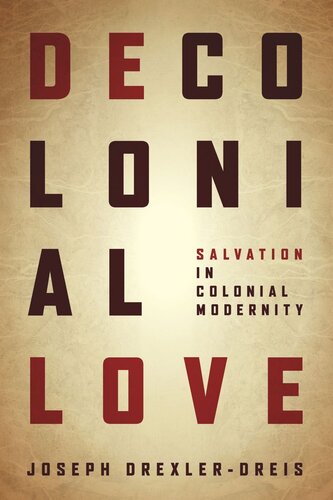

Most ebook files are in PDF format, so you can easily read them using various software such as Foxit Reader or directly on the Google Chrome browser.
Some ebook files are released by publishers in other formats such as .awz, .mobi, .epub, .fb2, etc. You may need to install specific software to read these formats on mobile/PC, such as Calibre.
Please read the tutorial at this link: https://ebookbell.com/faq
We offer FREE conversion to the popular formats you request; however, this may take some time. Therefore, right after payment, please email us, and we will try to provide the service as quickly as possible.
For some exceptional file formats or broken links (if any), please refrain from opening any disputes. Instead, email us first, and we will try to assist within a maximum of 6 hours.
EbookBell Team

4.0
36 reviewsBringing together theologies of liberation and decolonial thought, Decolonial Love interrogates colonial frameworks that shape Christian thought and legitimize structures of oppression and violence within Western modernity. In response to the historical situation of colonial modernity, the book offers a decolonial mode of theological reflection and names a historical instance of salvation that stands in conflict with Western modernity. Seeking a new starting point for theological reflection and praxis, Joseph Drexler-Dreis turns to the work of Frantz Fanon and James Baldwin. Rejecting a politics of inclusion into the modern world-system, Fanon and Baldwin engage reality from commitments that Drexler-Dreis describes as orientations of decolonial love. These orientations expose the idolatry of Western modernity, situate the human person in relation to a reality that exceeds modern/colonial significations, and catalyze and authenticate historical movement in conflict with the modern world-system. The orientations of decolonial love in the work of Fanon and Baldwin—whose work is often perceived as violent from the perspective of Western modernity—inform theological commitments and reflection, and particularly the theological image of salvation.
Decolonial Love offers to theologians a foothold within the modern/colonial context from which to commit to the sacred and, from a historical encounter with the divine mystery, face up to and take responsibility for the legacies of colonial domination and violence within a struggle to transform reality.
Introduces and argues for the concept of "Decolonial Love" as a way for Christianity to account for its historical complicity with the violent history of colonial enterprise.